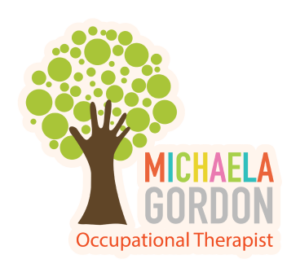
There are some frequent questions that are brought up when your child needs therapy.
The thought of therapy can leave the parents experiencing a variety of emotions, which we will touch upon is this conversation. For some parents, they come to find that their child has been diagnosed with a disability. For other parents, they feel a sense of frustration because they see their child has some difficulties that others may not feel are significant, but the parent feels are impacting the child’s self-esteem and their everyday functioning. So whether you are a parent that is hearing that your child needs therapy services or whether you are a parent desperately looking for a therapist that can help identify and address the concerns you are seeing in your child, initiating therapy services can feel a little overwhelming.
You may be thinking: What do the long-term needs of my child look like? Who will help me and my child? How will these needs affect all the members of my family? How will these needs affect my ability to work? The beginning stages of this process can feel daunting, but surrounding your child and your family with knowledgeable, caring, and committed persons can make all the difference.
The therapeutic experience is determined by its purpose and participation. It about learning more about your child needs and determining a plan in a calm, well thought out manner. It is about gathering therapeutic tools that will empower you as parents. This can include direct participation in therapy, reading a recommended book, utilizing a home program, or becoming part of a support group. It is about your child engaging in therapeutic experiences that give them a better sense of themselves, which in turn creates more purposeful interactions in their functional settings.
Therapy is most beneficial when all parties are working in the best interest of your child. It is human nature for us to pass judgments on the way we approach difficulties or come up with solutions. When there are a variety of professionals in your family’s life, it is important for all of us to work towards solutions in a collaborative manner. The more balance there is between approaches, the better outcomes we can yield.
Often times, children are getting services from a variety of sources and the professionals may not realize your other commitments. You may also have other family obligations such as activities for siblings or work commitments. As you begin to gather professional recommendations, there are many factors that need to be considered. The recommendations are based on the assessment of the child’s level of functioning and your concerns. As parents, you are the driving force behind determining what your child needs. Deciding to participate in therapy and for how long, are difficult decisions to make. The therapy should not only be child-centered, but also family-centered, focusing on the areas that you find to be of concern. It is important that you keep an open communication during the therapy process to ensure that your family’s needs are being met and that your child is benefiting from the selected therapies.
Throughout the therapy experience, progress on goals and annual re-evaluations will help to determine modifications that need to be made to your child’s plan of care. Changes can also be made at any time, but establishing times to closely examine the plan of care will ensure that your child’s needs are being met. In addition, evaluations are important because they give us a baseline to determine if your child’s skills are falling within a range similar to their peers. The scores will help the professional determine areas of concern including concerns that may not have been noticed by observation.
Therapy can be a wonderful and beneficial experience. It can empower you as a parent by providing you with the knowledge and tools to help your child succeed. Therapy can help your child to develop a better sense of themselves and help them to foster their strengths while supporting them through their difficulties. Therapy can help them to develop needed skills to participate in daily activities. My goal is to create a positive and beneficial therapeutic experience for your family.
Michaela E. Gordon, OTR/L
